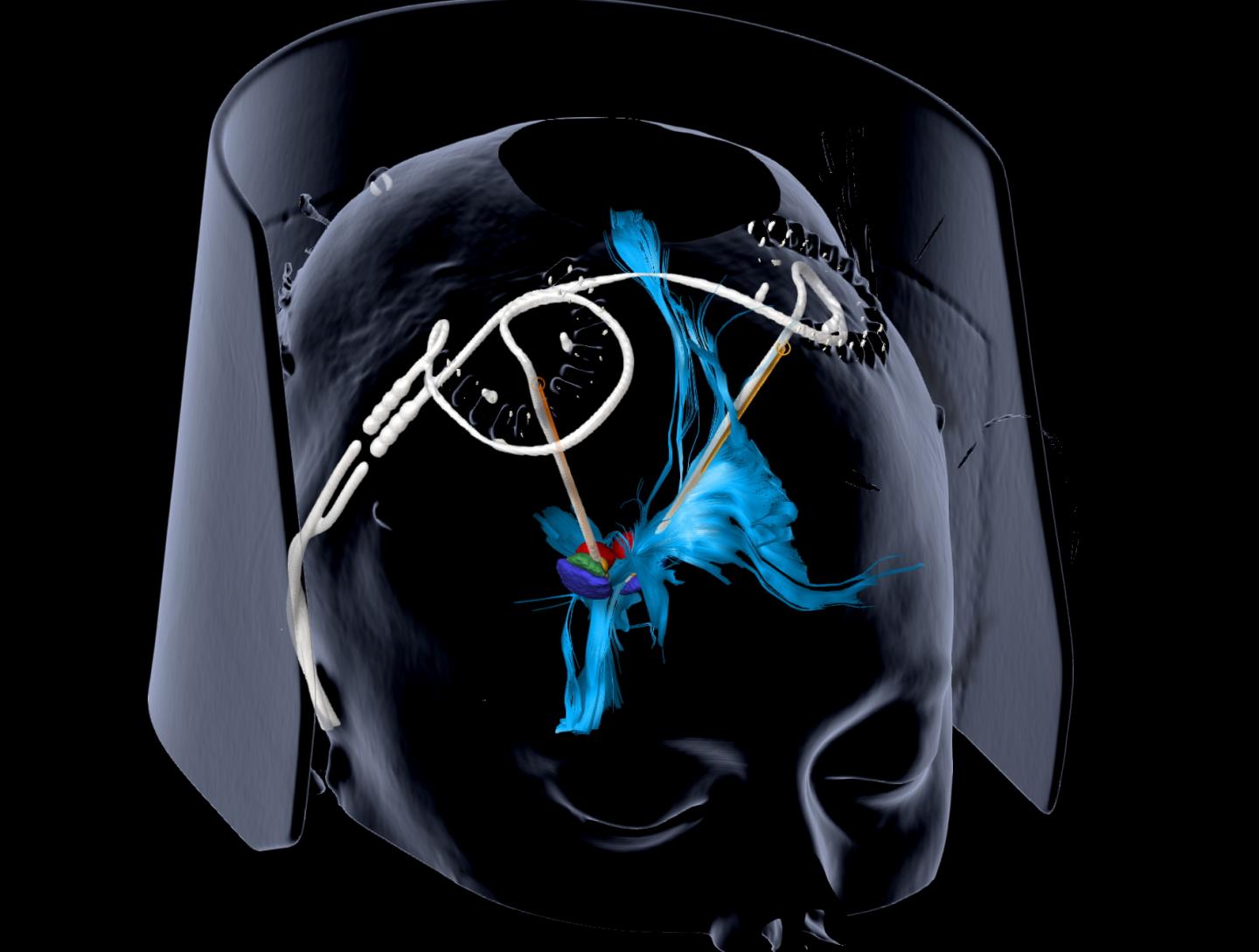News
Breakthrough Brain Stimulation Technique Offers New Hope for Patients With Treatment-Resistant Depression

The researchers implanted the deep brain stimulation systems in the patients' medial forebrain bundle (blue) of the brain, a part of the brain's reward system.
| (Photo : Source: University of Freiburg - Medical Center)
In a significant advancement in mental health treatment, a novel brain stimulation technique has shown remarkable promise in patients grappling with hard-to-treat depression.
This breakthrough, emerging from the latest research on transcranial magnetic stimulation (TMS), offers a glimmer of hope for those who have found little relief in conventional therapies.
The study, spearheaded by Sabrina Segal, Ph.D., Director of Research at Family Care Center, has achieved a striking success rate.
Overall, 66% of patients responded to the modified TMS protocol, with 42% experiencing acute remission. The figures are notably higher than the 29% response rate for the standard FDA-approved TMS, as pointed out by Dr. Segal in a news release.
The findings were recently published in the journal Brain Stimulation.
This novel approach tweaks the existing FDA-approved TMS technique, a non-invasive procedure that involves magnetic stimulation of specific brain regions.
"Our TMS protocol reduced patient symptoms considerably more than other approaches and with virtually no side effects," Segal added.
The need for such advancements is underscored by the fact that only 30-50% of depression patients achieve full recovery with traditional psychotherapy or medication. These conventional treatments often bring with them a host of side effects, ranging from weight gain to sexual dysfunction.
For those with major depressive disorder, the leading cause of disability globally as per the World Health Organization, the search for effective treatments is particularly urgent.
Segal underscored the scale of the challenge: "This is a global epidemic. Simply put, we need more effective treatment options, and that's where TMS can make an impact."
The trial involved over thirty patients receiving TMS to the front left portion of the brain, followed by a unique addition: three minutes of high-frequency stimulation to the right side of the brain.
"We took that approach a step further. What we did was follow up the more traditional stimulation of 15 minutes to the left side of the brain, with three minutes of high frequency, short bursts of stimulation to an area in the right side of the brain," explained Charles L. Weber, DO, FASAM, chief medical officer at Family Care Center.
"This type of stimulation to the right side has been associated with improvements in symptoms related to anxiety and post-traumatic stress disorder (PTSD). A couple of recent studies have demonstrated a reduction in depressive symptoms in older adults; however, this is the first study to show the effectiveness of the right-side stimulation on reduction of depressive symptoms in younger adults," Weber added.
Remarkably, the study's patient group, with a mean age of 42.5 years, diverges from the older populations typically involved in TMS research.
Patients in the study, many of whom also suffered from conditions like anxiety and PTSD, demonstrated significant improvement in their depression symptoms.
"There is much more research needed in those areas, but given our initial success, we're optimistic about the potential, particularly given their demographics," Segal said.
"We are making huge strides in understanding how TMS works, but we're still just scratching the surface," Segal concluded. Hopefully, this could someday become a first-line therapy for millions who suffer from a variety of mental illnesses and spare them the devastating toll they often take on their lives."
With this groundbreaking study, the path towards more effective, side-effect-free depression treatments seems more promising than ever, potentially transforming the lives of millions suffering in silence.









Join the Conversation